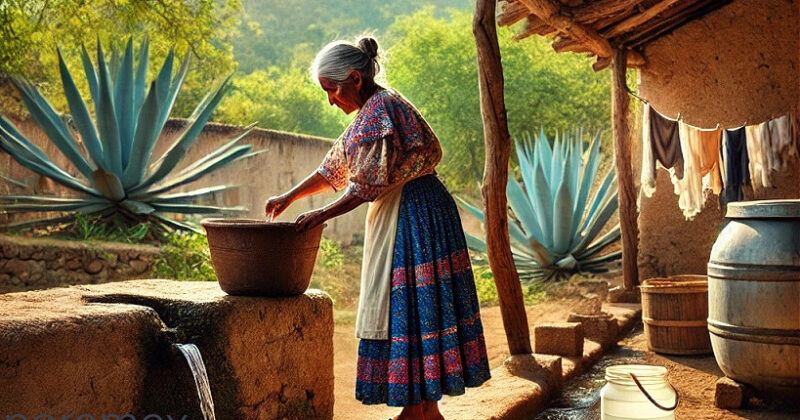Ghost of Dona Felix at the Old Washhouse in Tequila
Tequila, a Pueblo Mágico in Jalisco, Mexico, is renowned for its rich cultural heritage. As one strolls through its cobblestone streets, it’s common to hear locals whispering tales of great charros, ancient deities, and hidden secrets. Among these stories is the legend of the washhouses, a place deeply intertwined with the town’s history and traditions.
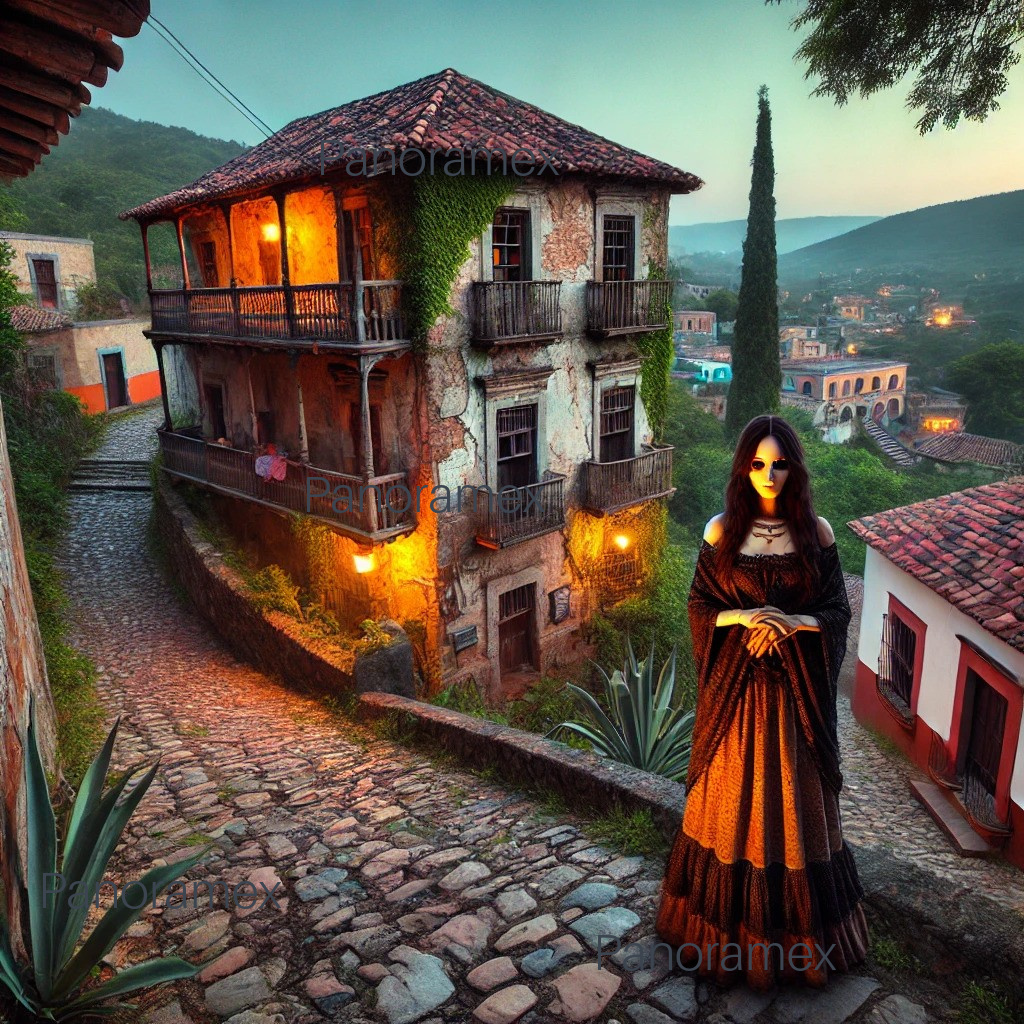
The Washhouses of Tequila
Constructed in the early 20th century as a solution to the town’s water scarcity, the washhouses of Tequila quickly became a central hub for the community. These structures were used by housewives to wash clothes and served as a gathering place to share joys and sorrows. The washhouses were designed to utilize the clean water from the Atizcua stream, filling 83 smooth stone basins where the women could scrub their clothes.
Over time, the washhouses evolved into a social meeting point. Housewives would congregate there, sharing stories and singing love songs. Despite being initially intended for women, it wasn’t long before romantic charros began frequenting the area to court them. This interaction gave rise to the famous Mexican saying, “men come to flirt, women come to wash¨.
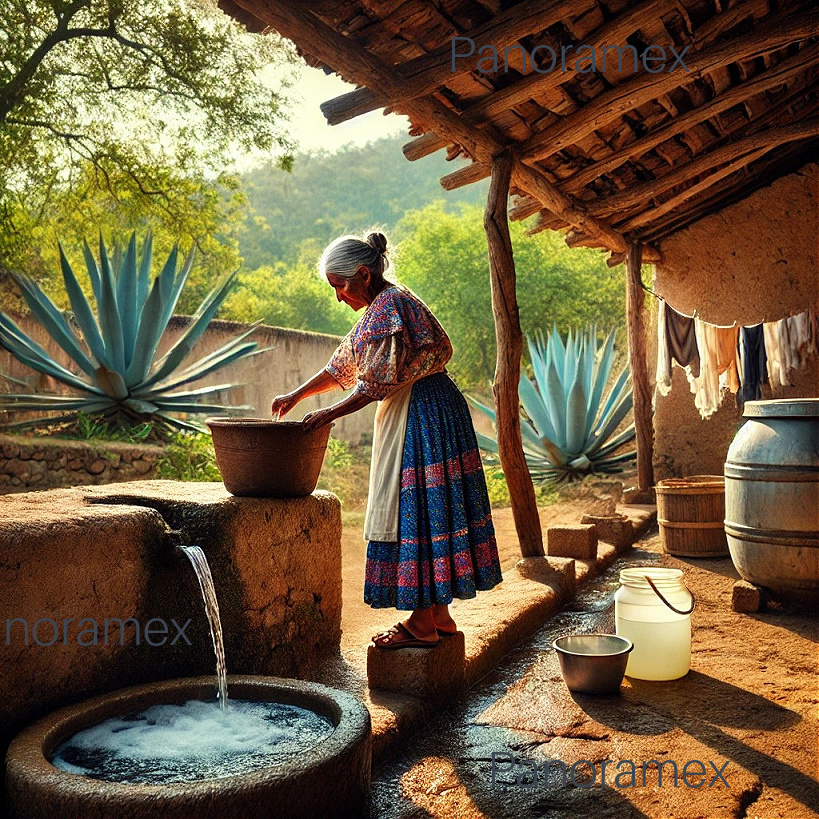
Today, although no longer used for their original purpose, the washhouses have become one of Tequila’s main tourist attractions. Their historical significance is complemented by the legends that surround them.
The Legend of Doña Félix
One of the most famous legends associated with the washhouses is that of Doña Félix. According to the story, Félix began washing clothes for others at the age of fifteen. Being short in stature, she used a small wooden stool to reach the washbasin. Over the years, young Félix grew into an elderly woman, known for always washing clothes at the same spot. She continued this routine until she passed away at the age of 85 from natural causes.
However, her story didn’t end with her death. After she passed away, the townspeople decided to keep her famous stool, ensuring that no one else would use it. Yet, to their astonishment, the stool would reappear at Félix’s washing spot every morning, despite their efforts to store it elsewhere. Believing that her spirit had returned to continue her lifelong task, the townspeople cemented the stool to the ground so that Doña Félix could continue washing clothes from beyond the grave.
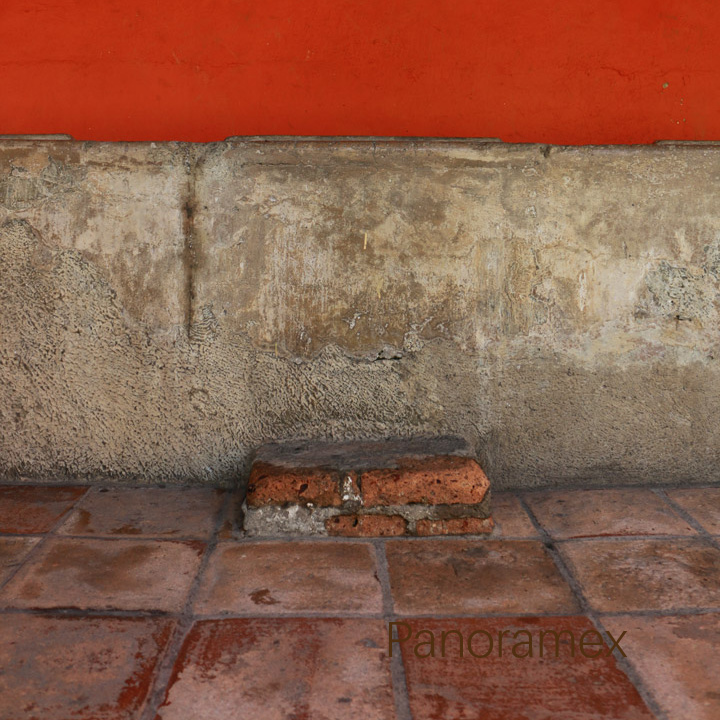
It is said that if you visit the washhouses of Tequila at night, you might still see and hear Doña Félix scrubbing clothes, her spirit dedicated to the task she performed in life.
Ghost of Dona Felix at the Old Washhouse in Tequila
Visiting the Washhouses
To visit the washhouses, start from main square. Walk straight for about a block until you reach Ramón Corona Street. Turn right and continue until you find Tabasco Street. Near the end of this street, you will find the washhouses.
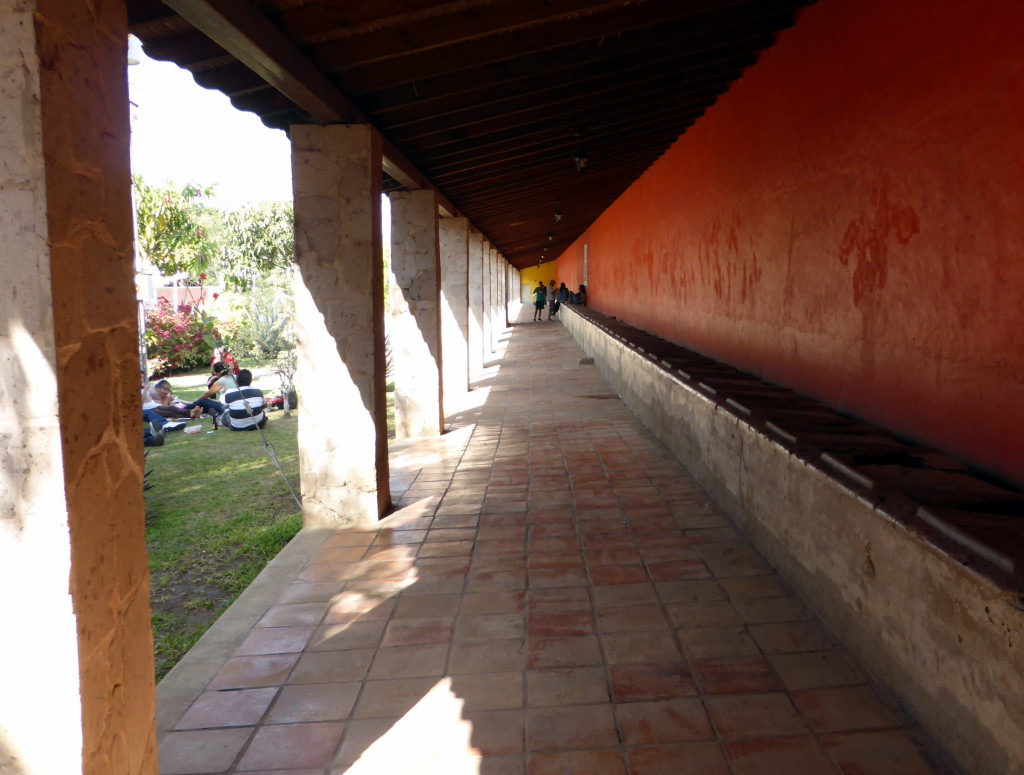
For those who love walking and exploring a Tequila Vilage with beautiful colonial buildings and cobblestone streets, it is recommended to make this journey on foot. However, due to the distance, you can also take a Tequila Tour from Guadalajara.
The Social Significance of the Washhouses
The washhouses were more than just a place to clean clothes; they were a vital part of the social fabric of Tequila. Women from all over the town gathered there, creating a sense of community and solidarity. The act of washing clothes together became a ritual where they shared stories, exchanged advice, and supported each other through life’s challenges.
Guachimontones y Tequila Tour Experience
The washhouses were also a place where important news and gossip were spread. In a time before modern communication, these gatherings served as a way to disseminate information quickly throughout the community. The women would discuss everything from personal matters to town politics, making the washhouses a hub of information and social interaction.
The Courting Rituals
The presence of the charros added an element of romance to the washhouses. These dashing horsemen would come to flirt with the women, often serenading them with songs and poems. This interaction was a significant part of the courting rituals of the time. The washhouses became a backdrop for many love stories, where young men and women met and fell in love.
The phrase “men come to flirt, women come to wash” encapsulates this dynamic. It highlights how the washhouses served as a unique social space where traditional gender roles were both reinforced and gently subverted through the playful and romantic interactions that took place there.
The Transformation into a Tourist Attraction
As times changed and modern conveniences made washhouses obsolete, the physical structures remained as a testament to Tequila’s history. Recognizing their historical and cultural value, the town preserved these washhouses as a tourist attraction. Today, they stand as a reminder of the town’s past, drawing visitors who are eager to learn about Tequila’s heritage and the stories that shaped it.
Tour Tequila
Tourists visiting the washhouses can imagine the lively gatherings that once took place there. The site offers a tangible connection to the past, allowing visitors to step back in time and experience a slice of daily life from a bygone era.
The Ghostly Presence of Doña Félix
The folk tale of Doña Félix adds a mystical element to the washhouses. Her story has captivated the imagination of locals and visitors alike. The idea that her spirit continues to wash clothes long after her death speaks to the deep connection she had with her work and the washhouses themselves.
Visitors who come to the washhouses at night often report feeling a chill in the air or hearing faint, ghostly sounds. Some claim to have seen a spectral figure bent over a washbasin, scrubbing diligently. These experiences add to the allure of the site, making it a popular destination for those interested in the paranormal.
Preserving the Legend
The townspeople of Tequila take pride in their legends and work to preserve them for future generations. The story of Doña Félix is not just a ghost tale but a part of the town’s cultural identity. By sharing this story, they keep the memory of Doña Félix alive and honor the contributions of the women who made the washhouses a vibrant social space.
Local guides often recount the legend to visitors, ensuring that the tale of Doña Félix remains a part of Tequila’s living history. This storytelling tradition helps maintain the town’s cultural heritage, bridging the past and present.
The Cultural Impact
The washhouses and the legend of Doña Félix illustrate the importance of community and tradition in Tequila. They highlight how everyday activities can become deeply significant cultural practices. The washhouses were not just about washing clothes; they were about fostering connections, sharing experiences, and building a sense of community.
The preservation of the washhouses as a tourist attraction and the perpetuation of the legend of Doña Félix show how Tequila values its history. These elements contribute to the town’s identity as a Pueblo Mágico, a place where the past and present coexist in a unique and meaningful way.
Private Tequila Tour
The legend of the washhouses of Tequila and the ghost of Doña Félix is a captivating tale that reflects the town’s rich cultural heritage. The washhouses, once a vital social hub, now stand as a testament to Tequila’s history and traditions. The story of Doña Félix, with her enduring spirit, adds a mystical element that continues to intrigue and attract visitors.
As you walk through the streets of Tequila, take a moment to visit the washhouses and reflect on the stories they hold. Feel the presence of the past, the echo of laughter, and the whispers of old songs. And if you listen closely, you might just hear the ghostly scrubbing of Doña Félix, a reminder of the enduring spirit of Tequila and its people.
